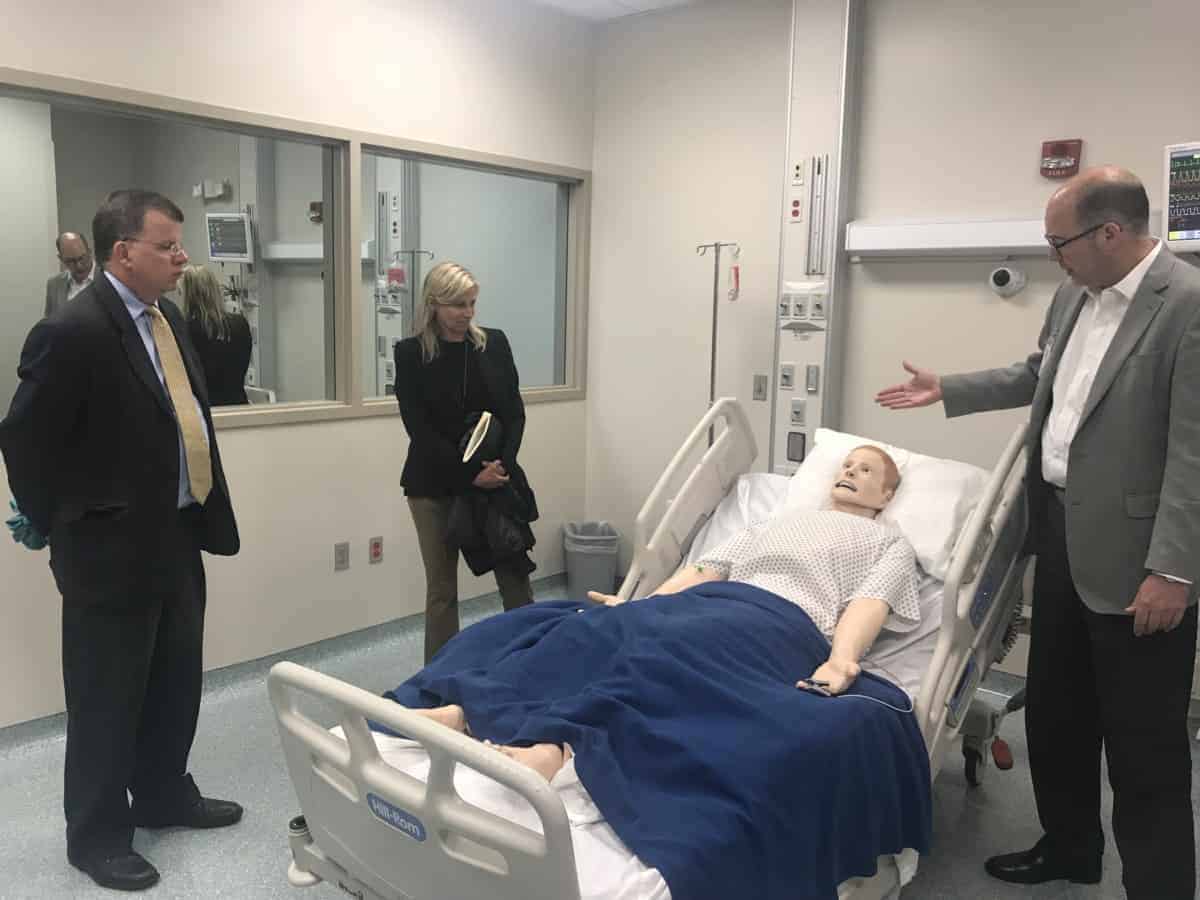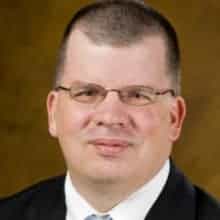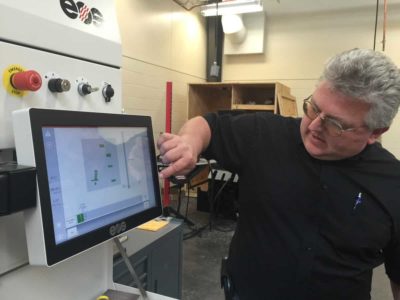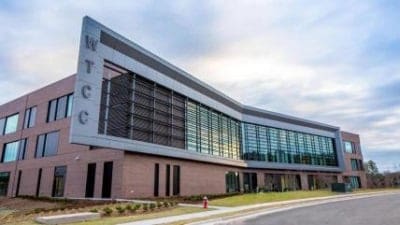Over the past 20+ years that I’ve lived in North Carolina, I’ve defined our community colleges in different ways in my mind. The cornerstone of state and local economic development strategy. The home of one of North Carolina’s public policy innovations – early colleges. The gateway leading to the path of lifelong learning. The employer of some of North Carolina’s most underpaid and underappreciated professionals. The holder of the least defined mission of our education institutions.
But today, as president of the Golden LEAF Foundation, I think of them in one primary way: the partner we need to help us live out our mission to transform the economy of rural, tobacco-dependent, and economically distressed areas of North Carolina.
Simply put, Golden LEAF needs community colleges to thrive and succeed.
Golden LEAF has been a strong and consistent funder of the state’s community colleges, awarding over $103 million in grants over our lifetime for campus projects and for scholarships. In addition to individual grants made to local colleges, the Foundation has made three large, strategic investments to help the NC Community College System and its local institutions start new and enhance existing programs to train workers for employment in the life science, aviation, and advanced manufacturing sectors. I have no doubt that we will continue to build on the record of investment.
Why?
Community colleges are both the backstop and the accelerator for building the state’s talent pipeline. When economic times are tough, community college enrollments skyrocket as those who lose jobs or who cannot find them turn to these campuses to develop skills to improve their marketability. When times are good, our economic development recruiters pitch the 58 campuses as key assets to reassure new and existing employers that North Carolina has the capacity to meet their demands for a highly-skilled and competitive workforce.
Now, as North Carolina’s economy hovers near full employment, the community colleges represent the best hope for those North Carolinians with substantial barriers to employment to reconnect, up-skill and complete a credential or degree necessary to get hired in a job that can provide a decent wage to support themselves and their families.
Yet sometimes community colleges are overlooked — perhaps because they do so many things. I remember talking to a major employer in a rural community who was sending employees to Maryland for training, when I knew full well that a community college five miles away had expertise in this industry. But the connection between the college and the business concerning workforce training had not happened.
So Golden LEAF facilitated the discussion and added some money to renovate and equip space at the college to demonstrate the seriousness with which we took the situation. Today, that employer sends its people down the road to receive training, instead of on a plane or up the interstate to a higher-cost option.
It’s not always that easy, but we have noticed that when we require that a community college demonstrate demand for employment at specific companies and show private sector dollars committed for a project, we tend to get better outcomes. I hope the availability of our funding has helped encourage disciplined thought about how community colleges define success and help them tell that story in a concrete way.
I’ve been part of MyFutureNC, a product of the vision of private funders with a deep interest in improving education. One of its objectives is to establish a target goal of a percentage of North Carolinians of working age to possess a meaningful credential or degree. This is an opportunity for the entire state to be better prepared for the jobs of the future that we know are coming to North Carolina. Community colleges have to play a big role for that goal to be achieved.
Most North Carolina early colleges, a four- to five-year program where students take college-level coursework while still in high school, are housed on community college campuses. Their graduation rates are phenomenal, and the stories of their graduates even more so.
I remember a young woman who graduated from an early college in a rural community in four years, was awarded a scholarship from Golden LEAF, and finished her bachelor’s degree in two more years and was back home teaching in the elementary school that she attended at the age of 20. This year, I met a young man who earned an Associate’s Degree in Arts and Science at age 18, while working 30+ hours a week as the sole bread winner for his family.
North Carolina has much to brag about in education, and early colleges are a definite point of pride.
And it’s not just those young people. It’s the 27-year-old who dropped out of high school, was working, lost a low-paying job, and is now returning to college to complete his education. Or the 55-year-old whose children are going to college, who realized that she needs to increase her skills to move ahead in her job.
Community colleges take all comers, and we all need to better understand the complexity of that mission to be good partners.
A brief postscript: I’ve known our new community college system president Peter Hans for quite a while. When recently discussing his priorities, he brought up faculty salaries and the challenge they face hiring and retaining qualified instructors, especially in sectors like healthcare, industrial technologies, and others where industry pay often exceeds the wage a person can earn teaching. Let me say “amen” to that.
Our state leaders have been vigorously and thoughtfully working to improve K-12 teacher salaries and remain mindful of the competitive environment for our university faculty. I applaud President Hans’s efforts to focus on recruiting and retaining quality instructors for community colleges, given the important role we want them to fill.





